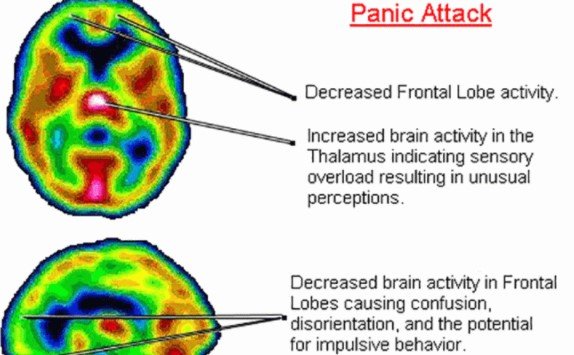Living with anxiety and panic attacks can be overwhelming, and many people are unaware that their symptoms might be linked to specific nutrient deficiencies. Research increasingly shows that crucial nutrients like Vitamin B6 and iron play a significant role in mental health, potentially offering new insights into managing these challenging conditions.
Understanding the Connection Between Nutrients and Mental Health
Anxiety disorders affect millions of people worldwide, with symptoms ranging from persistent worry to sudden, intense panic attacks. While psychological and environmental factors are well-recognized, emerging scientific evidence suggests that nutrient deficiencies can substantially contribute to these mental health challenges.
Vitamin B6: A Critical Player in Anxiety Management
Vitamin B6, also known as pyridoxine, is a powerhouse nutrient that plays a crucial role in neurotransmitter synthesis. Specifically, it acts as a cofactor in producing serotonin and GABA, neurotransmitters directly responsible for mood regulation and stress response.
- Low levels of Vitamin B6 can disrupt neurotransmitter balance
- Studies have shown a direct correlation between B6 deficiency and increased anxiety symptoms
- Supplementation may help reduce the frequency and intensity of panic attacks
Iron Deficiency: A Hidden Trigger for Anxiety
Iron plays a critical role beyond just preventing anemia. Its importance in oxygen transportation and brain function means that deficiencies can significantly impact mental health. Research indicates that individuals with iron deficiency anemia are more likely to experience anxiety and panic disorders.
Physical symptoms of iron deficiency, such as fatigue, weakness, and dizziness, can also exacerbate anxiety, creating a challenging cycle of mental and physical distress.
Comprehensive Nutritional Strategies for Managing Anxiety
Key Nutrients for Mental Well-being
Beyond Vitamin B6 and iron, several other nutrients contribute to mental health:
- Magnesium: Known for its calming effect on the nervous system
- Zinc: Supports neurotransmitter function and mood regulation
- Vitamin D: Plays a crucial role in mood stabilization
- B-complex vitamins: Support overall brain health and neurotransmitter production
Dietary Recommendations
To combat nutrient-related anxiety, consider incorporating these foods into your diet:
- Vitamin B6-rich foods: Chickpeas, poultry, bananas, and potatoes
- Iron-rich options: Lean meats, spinach, lentils, and fortified cereals
- Magnesium sources: Nuts, seeds, whole grains, and dark chocolate
- Zinc-containing foods: Oysters, beef, pumpkin seeds, and legumes
When to Seek Professional Help
While nutritional interventions can be powerful, they are not a substitute for professional medical advice. If you’re experiencing persistent anxiety or panic attacks, it’s essential to consult healthcare professionals who can:
- Conduct comprehensive blood tests to identify nutrient deficiencies
- Rule out underlying medical conditions
- Develop a personalized treatment plan
- Provide guidance on supplementation and dietary changes
Additional Medical Considerations
Some medical conditions can mimic or contribute to anxiety symptoms, including:
- Thyroid disorders
- Adrenal system imbalances
- Chronic inflammatory conditions
Conclusion
Understanding the intricate relationship between nutrition and mental health opens new pathways for managing anxiety and panic attacks. By addressing potential nutrient deficiencies, adopting a balanced diet, and working closely with healthcare professionals, individuals can take significant steps towards improved mental well-being.
Remember, managing anxiety is a holistic journey that encompasses nutrition, lifestyle, psychological support, and medical intervention. Every small step towards understanding and addressing your body’s needs can make a substantial difference in your mental health experience.





